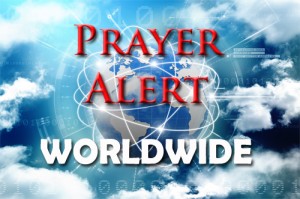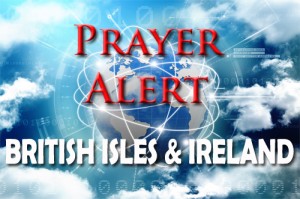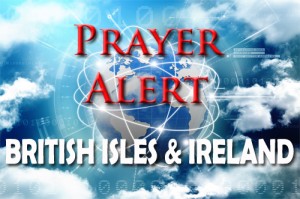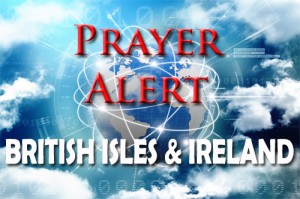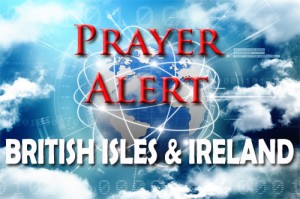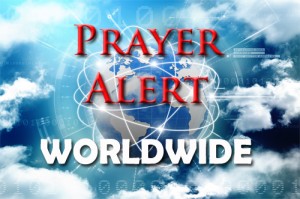Displaying items by tag: poverty
France: deep-rooted anger
In Florian Dou’s shopping cart there was a packet of sausages and not much else. He had spent all his salary ten days before the end of the month. To survive when the money runs out before the next payday is a monthly challenge for him and many others in provincial French towns. Mr Dou was angry, and used what money he had left to drive 250 miles to join fiery protests in Paris, where police moved in with teargas, water cannon and rubber bullets against those protesting against fuel tax and price rises. Dou vowed the protesters are not going anywhere: see https://www.nytimes.com/2018/12/02/world/europe/france-yellow-vest-protests.html The gilets jaunes (‘yellow vests’) protests have come to embody widespread disillusionment with President Macron and are gaining intensity. Macron has now abandoned fuel tax increases. Some protesters said his surrender came too late, and does nothing to quell the mounting anger at a government they consider out of touch with the problems of ordinary people.
Iran: poverty rising
The World Bank reported that after sanctions were removed in 2016 there were many positive economic developments in Iran. In November 2018 the US reimposed sanctions and requested India, China and EU countries, to stop working with Iran. Sanctions are major causes of food insecurity, mass suffering, and eventual high poverty rates. Oil is the largest source of income. When there is no oil coming, there are no US dollars. Everything purchased in Iran is with US dollars. ‘No dollars’ causes the value of the Iranian rial to fall drastically, causing many companies to go bankrupt and having to let a lot of employees go. Sanctions increase the gap between the rich and poor. However there are a number of Christian business and mission initiatives established in Iran, including church-planting via small businesses. See
UK faith leaders back 'real' living wage
Sixty-five religious leaders have written a letter to the Times supporting the real Living Wage. They include twenty Catholic and Anglican bishops, a Roman Catholic archbishop, thirty Jewish rabbis, the president and vice-president of the Methodist Church, and the secretary general of the Muslim Council of Britain. The letter cites concern at low pay and in-work poverty 'which is damaging family life and robbing future generations of a secure and stable home'. It comes as celebrations are planned with 4,700 employers accredited by the Living Wage Foundation, which oversees the real Living Wage (currently £8.75) and the London Living Wage (currently £10.20) - set to rise in line with the real cost of living. Research has found that one in five workers is paid less than a real Living Wage, meaning millions are struggling to stay afloat financially as their wages don't meet the real cost of living.
The poorest country in Europe
Albania is considered to be the poorest country in Europe, with a high level of poverty and little access to basic social services. Thousands of children face injustice in many forms of abuse, violence, exploitation and early marriage. The country still lacks a fully functional system which should prevent, protect, and rehabilitate children from all forms of discrimination and abuse. World Vision works there to speak up on behalf of children and improve lives through child protection programmes (see ) In spite of the introduction of child protection measures, Albania is still one of the riskiest places for children in Europe. The risks start at birth - a high infant mortality rate - and continue through to early adulthood, when the lack of opportunities makes it difficult for them to become independent. UNICEF reported that 12% of children aged 5-14 are working while adults face unemployment and poverty.
Universal credit - another poll tax?
Sir John Major has called the government to rethink the nationwide roll-out of Universal Credit, warning of an unfair cost to families. Benefit changes coming into force next year have been compared to the poll tax that caused the downfall of Margaret Thatcher. About 3.2 million households will be worse off by about £50 a week, according to the Resolution Foundation think-tank. Theresa May has promised financial help for those affected. But the compensation system is not in place yet - and fewer than 20% of affected families are expected to receive support from it. People whose circumstances change, who make a brand-new claim, or who come off benefits and then go back on them, will not be protected. Veteran anti-poverty campaigner Frank Field said families in his Birkenhead constituency were being forced into ‘destitution’ by the introduction of Universal Credit.
Wales: children ‘walk the streets hungry'
The Church of Wales said that during the summer holidays youngsters ‘walk the streets hungry’, and a new approach to help is needed. Child poverty was described as the most serious issue facing the Welsh government. Although the church provides food packages, it is concerned that many children are still missing out. The Trussell Trust distributed 5,382 emergency packages last year, and expects the total to be higher this year. 2,500 children have had meals at 56 schools in 16 areas through a government scheme this summer, and Flintshire council has called for others to follow its lead in giving holiday lunches. The church has called for the £1m spent on this scheme to be used to safeguard community-based activity schemes. Many activity schemes are disappearing because of local authority budget cuts. They propose that the food element could be provided by charities.
1.5 million people destitute in the UK
A report has found that over 1.5 million people were destitute in the UK at some point in 2017, including 365,000 children. The chief executive of the Joseph Rowntree Foundation said that many rely on social security when hit with unexpected job loss, relationship breakdown, or ill-health. Yet local authorities and utility companies are forcing people into a corner when they are penniless and have nowhere to turn. Social security should hold people steady against powerful currents of rising costs, insecure housing and jobs, and low pay. Instead people are becoming destitute with no clear way out. To be destitute doesn’t mean getting by on very little, it’s losing the ability to keep a roof over your head, eat often enough, or afford warm clothes when it’s cold. You can’t keep yourself clean or put the lights on. This shouldn’t happen to anybody, let alone over 1.5 million people.
Child poverty in the UK
The UK is the sixth richest country in the world, yet poverty affects one in four children. Growing up poor means children miss out on warm clothes, school trips, or even having friends over for tea. Poverty impacts children’s health and educational outcomes. Leaving school with few qualifications translates into lower earnings over the course of a working life. Poorer childhood health results in more complicated health histories later in life, again influencing earnings and overall life quality. On 3 April the BBC reported that malnourished pupils with grey skin are filling their pockets with school canteen food due to poverty, and hunger is particularly apparent after the weekend. A Nottinghamshire headteacher said, ‘When you take poorer children to an event, you see the difference between them and children of the same age from affluent areas. It's the grey skin, the poor teeth, poor hair, they are thinner.’ Children are neglected because their families can’t afford food, heating or even bedding. See also
Foodbanks and poverty
The Trussell Trust runs a network of over 400 foodbanks across the UK, giving emergency food and support to people in crisis. Already this year they have given 586,907 three-day emergency food supplies to people in financial emergencies. Thousands of vulnerable people are finding that they cannot manage their budget when an unexpected extra expense occurs. They are barely surviving. On 7 March Trussell Trust’s Welsh branches called on Christians with knowledge of the welfare system to volunteer to help people, following a new Joseph Rowntree report revealing that a quarter of Welsh people are in poverty. Although overall poverty in Wales has gone down, specific groups, such as pensioners and single parents, have not seen any improvement.
Venezuela: unprecedented economic and political crisis
Six months ago, 93% of Venezuelans said their income was not sufficient to buy the food they need. 75% reported suffering weight loss, averaging 9 kg. The price of food is fifteen times the minimum wage, and prices continue to rise. The director of a Caracas-based health and nutrition charity said, ‘Malnutrition in Venezuela is a problem of corruption, not a lack of money’. Government price controls and other policies have crippled domestic production, and after the oil price drop caused imports to decrease dramatically, insufficient food is available for the over 30m Venezuelans. Meanwhile President Maduro’s efforts to consolidate power amid a deepening economic and humanitarian crisis have drawn widespread international condemnation. There are severe food and medicine shortages, soaring crime rates, and an increasingly authoritarian executive. 70% of the population is Roman Catholic and 29% percent Protestant. See

